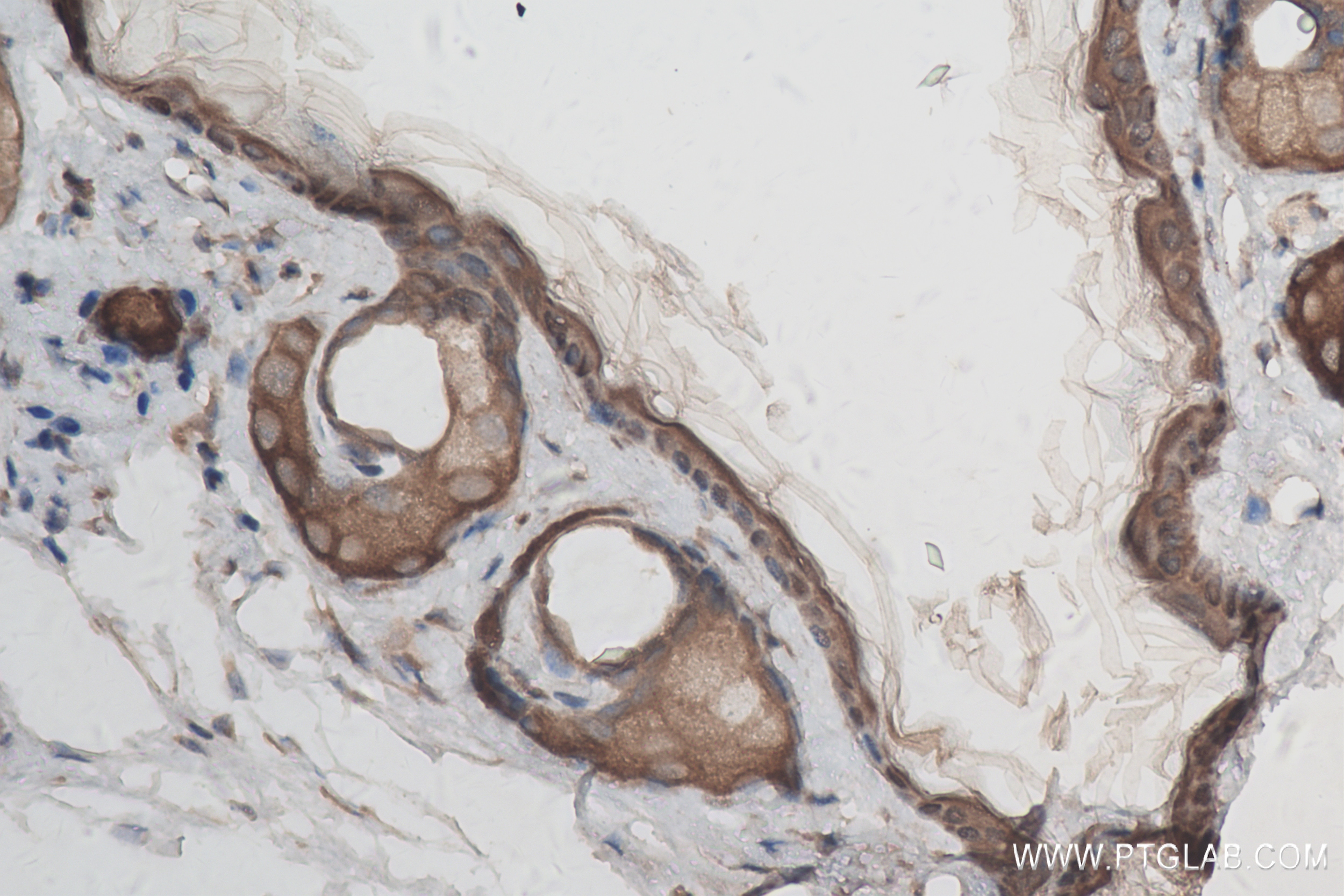Tested Applications
| Positive IHC detected in | mouse skin tissue Note: suggested antigen retrieval with TE buffer pH 9.0; (*) Alternatively, antigen retrieval may be performed with citrate buffer pH 6.0 |
Recommended dilution
| Application | Dilution |
|---|---|
| Immunohistochemistry (IHC) | IHC : 1:250-1:1000 |
| It is recommended that this reagent should be titrated in each testing system to obtain optimal results. | |
| Sample-dependent, Check data in validation data gallery. | |
Product Information
84638-1-RR targets LIPM in IHC, ELISA applications and shows reactivity with human, mouse samples.
| Tested Reactivity | human, mouse |
| Host / Isotype | Rabbit / IgG |
| Class | Recombinant |
| Type | Antibody |
| Immunogen |
Peptide Predict reactive species |
| Full Name | lipase, family member M |
| Calculated Molecular Weight | 48 kDa |
| GenBank Accession Number | BC157888 |
| Gene Symbol | LIPM |
| Gene ID (NCBI) | 340654 |
| RRID | AB_3672097 |
| Conjugate | Unconjugated |
| Form | Liquid |
| Purification Method | Protein A purfication |
| UNIPROT ID | Q5VYY2 |
| Storage Buffer | PBS with 0.02% sodium azide and 50% glycerol, pH 7.3. |
| Storage Conditions | Store at -20°C. Stable for one year after shipment. Aliquoting is unnecessary for -20oC storage. 20ul sizes contain 0.1% BSA. |
Background Information
LIPM, also named as LIPL3, belongs to the AB hydrolase superfamily and Lipase family. LIPM plays a highly specific role in the last step of keratinocyte differentiation. LIPM may have an essential function in lipid metabolism of the most differentiated epidermal layers.
Protocols
| Product Specific Protocols | |
|---|---|
| IHC protocol for LIPM antibody 84638-1-RR | Download protocol |
| Standard Protocols | |
|---|---|
| Click here to view our Standard Protocols |




